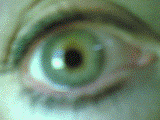Another
story coming out of the hellhole called New Orleans.
Drugs, prostitution, strip clubs, alcoholism, sexual perversion, poverty, crime, all of these are the norm in the city of Nagin.
When Katrina hit several years ago, and New Orleans residents left for higher ground, our city here in the northern part of the state, taking in thousands of the refugees, saw a huge increase in crime. One officer said that each day in court saw the first several hours of just New Orleans transplants being tried for everything from car-jacking to rape.
When you flush something, it normally goes down. Katrina flushed and caused an overflow – and the stench is still lingering.
Evidently most of the overflow subsided and is still concentrated around the bowl.
This from the AP:
NEW ORLEANS — As New Orleans tries to market its post-Hurricane Katrina self to tourists and businesses — both vital to economic revival from the August 2005 hurricane — the city is walking a tightrope with twin crises of violent crime and public corruption. The vexing realities pop up often enough to leave the city with a lot of uncomfortable explaining to do.
In the latest corruption development, Oliver Thomas, a once highly regarded member of the City Council, likely will be emerging from federal prison about the time many thought he would be sworn in as New Orleans' next mayor in 2010. A conviction for taking a $15,000 bribe did him in.
Meanwhile, more than 190 people have been murder victims this year in the city.
Which is worse? Gun-toting killers or sticky-fingered public officials?
Rafael Goyeneche, head of the Metropolitan Crime Commission, a private watchdog group, suggests the two can't be separated — and it's ludicrous to argue the point.
"They are different sides of the same coin," Goyeneche said. "One absolutely impacts the other."
Decades of corruption have siphoned money from properly funding the police department and district attorney's office, and largely reduced New Orleans' public school system to ruin. So, many young people have turned to crime — and there hasn't been an adequate criminal justice system to deal with them, Goyeneche said.
It's a vicious circle as businesses, many of which dealt directly with the "corruption tax," and residents give up and leave.
"Crime is driving away the tax base of this city, making less money available to fight crime," Goyeneche said. Solving the problems remains a daunting task. But there is movement in a positive direction, if it can be maintained.
U.S. Attorney Jim Letten — one of the leaders of a crusade against New Orleans corruption — recently said someone he would identify only as "loosely involved in a governmental entity" suggested he shift his attention from corruption to fighting violence. Letten's basic response: No way.
Letten isn't getting much help on the corruption front from other government entities — and it's unclear how much he should expect in the near future.
The Orleans Parish district attorney's office, never known for prosecuting corruption, is trying to get back on its feet after the resignation of District Attorney Eddie Jordan in the wake of a racial discrimination stink. State Attorney General Charles Foti lost his job at the polls after the collapse of two criminal prosecutions stemming from Katrina-related deaths — both labeled by critics as great re-election gimmicks had he succeeded.
Last week, the City Council moved to fund New Orleans' new inspector general, Robert Cerasoli, who has been working out of a cubbyhole at Loyola University. He said the proposed budget would fund hiring of 24 to 25 staffers who would look for waste and corruption in city government.
That is, if the $2.9 million needed to do so can be found. In the meantime, Mayor Ray Nagin thinks Cerasoli should do with less than half of that amount.
Nagin, of course, said earlier this year that the violence "helps keep the New Orleans brand out there" by focusing attention on the city's needs, which sent many residents and tourism interests into conniptions.
With the city's reduced population, the murder rate now exceeds the pre-Katrina figure, putting the tourism industry in a hard-sell position.
At last week's City Council meeting, Sandra Shilstone, president of the New Orleans Tourism Marketing Corp., said New Orleans needs both business and leisure travel. She said leisure travel, which made up 75 percent of tourist numbers before Katrina, accounts for just 60 percent now.
Fear of crime has been a concern consistently raised by focus groups around the country, Shilstone said. Tourism pushes the message that the killings are happening in known trouble spots where drug dealers fight for turf — not in the French Quarter or the convention district. But only one-high profile visitor murder — and they've happened before — would put a real dent in the visitor-safety argument.
Goyeneche and Letten say the high-profile corruption prosecutions show the business community that the "corruption tax" is being repealed and that citizens — judging by the number of tips coming in about chicanery — have had enough of it.
Success, of course, depends on whether officialdom gets the message and keeps up the pressure.Labels: Politics; Louisiana




